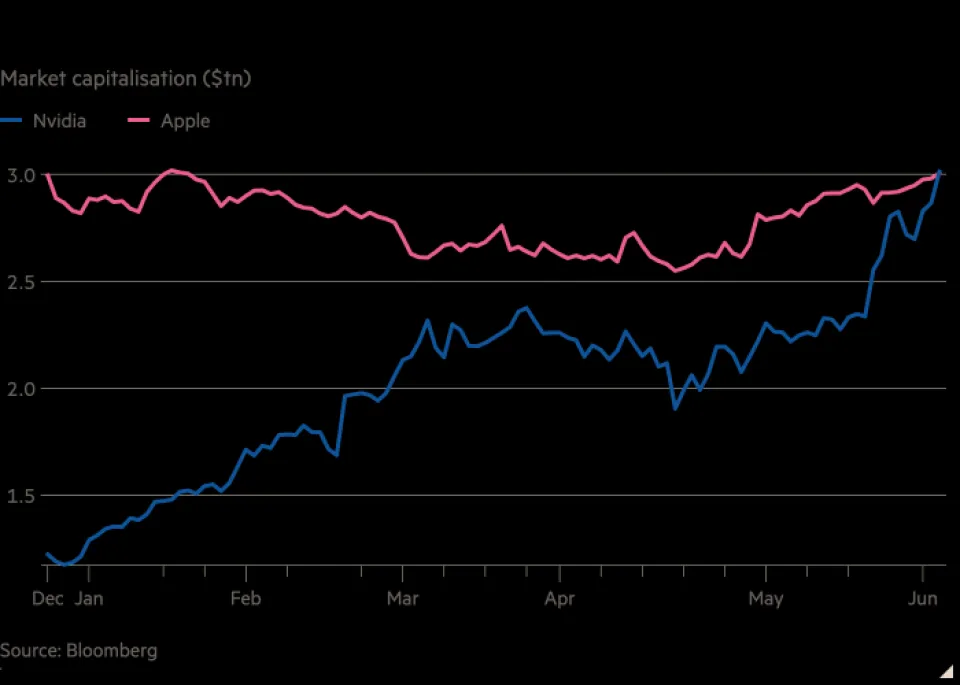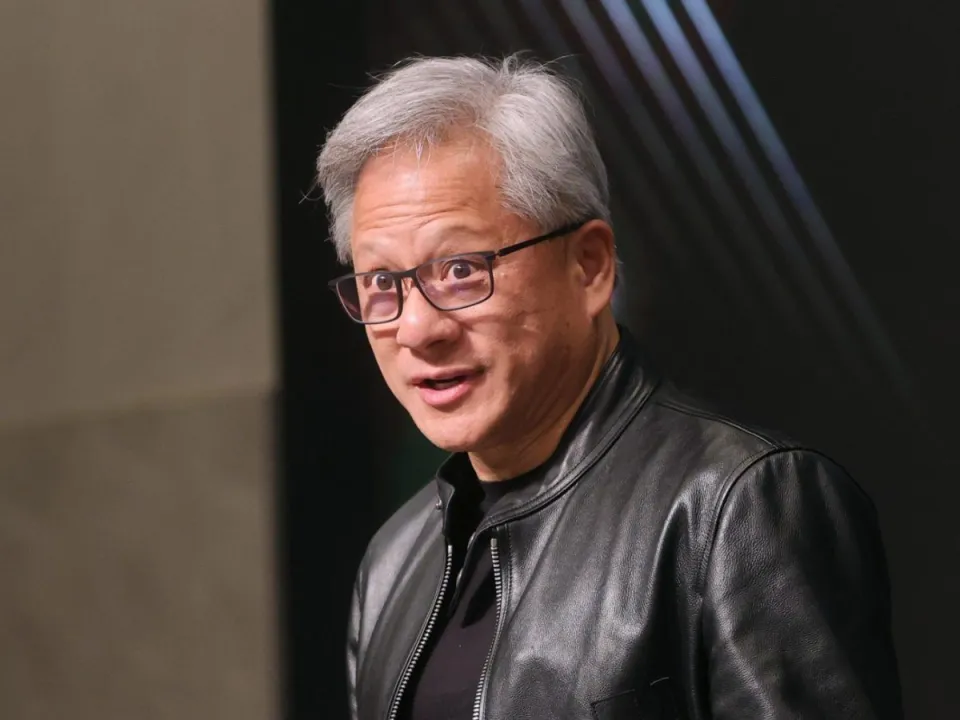In a landmark moment for the tech industry, Nvidia's market value soared past $3 trillion on Wednesday, eclipsing Apple and cementing its position as the world's second-most valuable company. This extraordinary surge in valuation comes on the back of a phenomenal year marked by skyrocketing demand for its artificial intelligence chips.
The US-based chip designer witnessed a staggering 5% surge in its shares, propelling its market capitalization ahead of Apple's for the first time, according to Bloomberg data. Nvidia's market cap concluded the day at $3.01 trillion, narrowly edging out Apple's $3 trillion valuation. This development marks a significant shift, as Apple relinquished its title as the most valuable listed company to Microsoft earlier this year.
Investor interest in Nvidia has surged amid robust demand for its chips from tech giants such as Google, Microsoft, and Meta, fueling optimism about sustained growth in the foreseeable future. Nvidia's data center chips, which power AI models, have been lauded by CEO Jensen Huang as catalysts for a new "industrial revolution," poised to revolutionize global business operations with productivity-enhancing capabilities.
The company's recent financial performance has been nothing short of stellar, with revenues witnessing a remarkable 262% year-on-year increase, primarily driven by sales of its cutting-edge "Hopper" chips. Additionally, Nvidia announced a 10-for-one stock split set to take effect on June 7, further augmenting accessibility to its shares.

Despite concerns about the sustainability of Nvidia's meteoric rise and fears of a potential bubble, the company's valuation, when measured against historical or anticipated profits, remains relatively modest. With a valuation of 42 times its expected earnings over the next 12 months, Nvidia's stock is trading at a premium compared to its peers. However, this valuation pales in comparison to the peak it reached during the AI fervor last year.
Nvidia's dominance in the AI hardware landscape remains unchallenged, despite efforts by rivals such as AMD and Intel to capture market share. The company continues to lead the global race to offer the most advanced hardware for increasingly demanding AI workloads, coupled with sophisticated software tools for AI applications.
CEO Jensen Huang's pledge of a "one-year rhythm" for new chip releases and the unveiling of Nvidia's "Blackwell" products earlier this year have further cemented its position as an industry frontrunner. Moreover, Huang's recent teaser about the forthcoming "Rubin" processors, set to ship in 2026, underscores Nvidia's commitment to staying ahead of the curve.
While Apple gears up for its annual Worldwide Developers Conference, where CEO Tim Cook is expected to outline the company's strategy for integrating generative AI features into its products, Nvidia's ascendancy underscores the shifting dynamics in the tech landscape. As competition intensifies and technological advancements reshape industries, Nvidia's unparalleled growth trajectory solidifies its position as a pivotal player in the AI-driven future.






